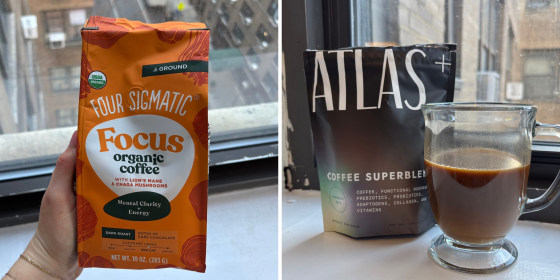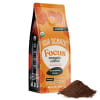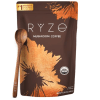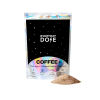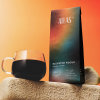When you make coffee, adding milk, sugar and cinnamon is par for the course. But mushrooms? That’s an entirely different conversation. Whether you find the idea repulsive or intriguing, mushroom coffee is a growing wellness trend — it’s a low-caffeine alternative to standard coffee, and depending on the types of mushrooms used, it might boost immunity, lower stress levels and help you focus, says Dr. Amy Lee, a medical nutritionist based in Orange County, California.
“Right now, there’s definitely not a cause and effect between drinking mushroom coffee and your health,” says Lee. “You can be open-minded and try it, but don’t assume it’s going to be the magic bullet for anything.”
Below, I talked to doctors about everything you need to know before drinking mushroom coffee. I also tried it myself so I could share my honest thoughts about how it tastes.
SKIP AHEAD What is mushroom coffee? | How I picked the best mushroom coffees | The best mushroom coffees to try | Why trust NBC Select?
Want more from NBC Select? Sign up for our newsletter, The Selection, and shop smarter.
What is mushroom coffee?
Mushroom coffee is exactly what it sounds like: ground coffee with powdered mushrooms mixed into it. But these mushrooms aren’t the types you find at the grocery store. They’re medicinal mushrooms (not psychedelic) varieties that may have health benefits and healing properties, says Lee. For example, some types of medicinal mushrooms can improve immunity, cognitive functions like memory and focus, cardiovascular health and athletic recovery, as well as reduce stress, anxiety and inflammation, says Dr. Brynna Connor, a family medicine doctor based in Austin, Texas.
Many mushroom coffees are also a low-caffeine alternative to standard coffee — a cup of mushroom coffee usually has about one-third of the amount of caffeine that’s in a cup of standard coffee, says Dr. Michael Aziz, an attending physician at Lenox Hill Hospital in New York City. It’s less caffeinated because brands essentially dilute coffee grounds with mushrooms — the more mushrooms in a blend, the less caffeinated it is, says Connor.
How I picked the best mushroom coffees
While shopping for mushroom coffee, experts suggest keeping the following factors in mind, all of which I considered while compiling my list of recommendations.
- Mushroom type: Chaga, turkey tail, lion’s mane, reishi, king trumpet, shitake and cordyceps (not exactly the ones from “The Last of Us”) are some of the most common types of medical mushrooms that brands add to their coffees, says Aziz. Each type has different potential health benefits — I detailed some of the main ones in the FAQ section below, and experts also recommend reading through brands’ websites, which often tell you the exact benefits its coffees aim to target via specific mushrooms.
- Format: Some mushroom coffees come ground, so you can brew them using a drip machine, single-serve machine, Fresh press or pour-over, while others are instant coffees that you mix into water.
- Taste: Ground mushroom coffee tastes the most like standard coffee — there’s more coffee than mushrooms in a blend, so while the flavor may be slightly earthy, there’s no overpowering mushroom taste. Many instant mushroom coffees, however, are made with more mushrooms and other ingredients than coffee — there might be a coffee essence to the beverage, but its flavor is entirely different, so it takes some getting used to.
- Additional ingredients: To boost the potential benefits of mushroom coffees, brands add additional ingredients, like medicinal herbs, prebiotics, probiotics, collagen and vitamins, to formulas. You’ll find these ingredients listed on the coffee’s nutrition label — talk to your doctor if you have questions about them in relation to your health.
- Caffeine level: A standard cup of coffee has about 150 milligrams of caffeine, says Aziz. Mushroom coffee is typically much less caffeinated — there’s usually about 50 to 60 milligrams of caffeine per cup, he says. If you’re sensitive to caffeine, choose a mushroom coffee that’s on the lower end of that range — caffeine level is typically printed on a bag of mushroom coffee or listed on the brand’s website. Some mushroom coffees are even less caffeinated with around 30 to 45 milligrams of caffeine.
- Brand reputation: Lee recommends reading reviews to learn about brands’ reputation among customers, and combing through their websites for information about their products’ ingredients. For example, check to see if the brand you’re interested in buying from is transparent about where it sources mushrooms from. Lee also suggests buying from a brand that’s been around for a while. “The longevity of the company can tell you a lot about how trusted it is,” she says.
The best mushroom coffees to try
Below, I rounded up the best mushroom coffees to try. The NBC Select staff and I tested some ourselves, while others are highly rated picks from popular brands.
Best overall grounds: Four Sigmatic Focus Organic Mushroom Coffee
“Four Sigmatic is the gold standard for mushroom coffee as far as I’m concerned,” says NBC Select SEO editor Nikki Brown. She’s been drinking it for about a year and buys the brand’s cold brew grounds since she prefers an iced beverage. “I don’t feel jittery while drinking it and the chocolate-y aftertaste isn’t completely offensive, compared to normal coffee,” says Brown. “The aftertaste isn’t the strongest, but it’s still pleasant enough that I can drink everyday, though I usually have it a few times a week.”
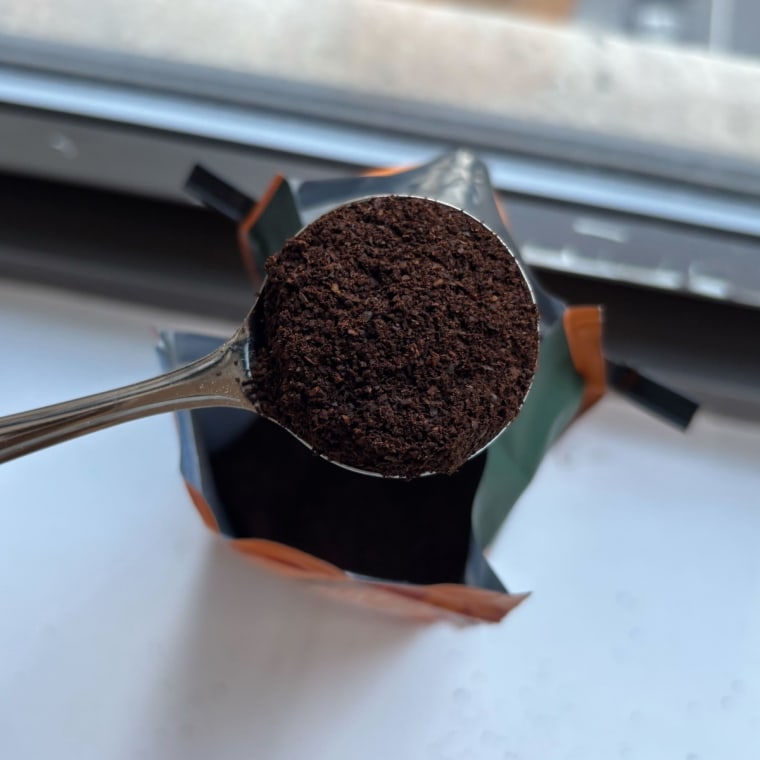
Four Sigmatic’s Focus blend is a dark roast coffee from Honduras made with lion’s mane and chaga mushrooms. It has about 150 milligrams of caffeine per 12-ounce cup, which is about the same as standard coffee. That makes it ideal for people who want the flavor and energy boost coffee offers, plus the potential health benefits of the medicinal mushroom — in this case, lion’s mane may improve memory and focus, and chaga mushrooms may boost immunity, says Connor.
This mushroom coffee is low in acidity and has a smooth taste with notes of dark chocolate and nuts. It comes ground so you can add it to a drip machine, French press or pour-over. Four Sigmatic also sells mushroom coffee pods that work with some single-serve machines, and instant coffee in individual packets that Brown keeps at her desk.
Best overall instant: Ryze Mushroom Coffee
Ryze is an instant Arabica coffee blend made with six medicinal mushrooms: cordyceps, lion’s mane, reishi, shitake, turkey tail and king trumpet. There’s also powdered organic coconut milk and MCT oil in its formula, the latter of which is primarily extracted from coconut oil and adds flavor to coffee, says Aziz. It’s designed to help you focus better and support your energy levels, gut health and immune system, according to the brand. One serving of Ryze Mushroom Coffee has about 48 milligrams of caffeine.
Best low-caffeine instant: Everyday Dose Mushroom Coffee+
Everyday Dose is another popular instant mushroom coffee that the brand says helps with gut health, energy, focus and clarity, as well as managing your mood and stress levels. There’s lion’s mane and chaga mushrooms in the blend, which also has bovine collagen and L-Theanine, an amino acid that can help with focus and sleep quality, according to the brand. One serving has 45 milligrams of caffeine and it’s also a low-acidity option with prominent chocolatey notes.
Best grounds subscription: Atlas+ Elevated Focus Mushroom Coffee
Similar to Four Sigmatic’s Focus blend, you can brew Atlas Coffee Club’s Elevated Focus blend using a drip machine, French press or pour-over. It has single-origin Nicaraguan coffee, lion’s mane, L-theanine, green oat extract and eleuthero root (also known as Siberian ginseng) in its formula. The mushroom coffee tastes very similar to a standard cup, so I found it easy to get used to the flavor. After a few sips, I forgot that I was drinking mushroom coffee. The beverage helps with focus and energy, multitasking and immunity, according to the brand. It has about 80 to 100 milligrams of caffeine per 8-ounce cup.
This brand also sells an instant mushroom coffee superblend, which is low in caffeine at about 45 milligrams per cup. I found it to have a bitter flavor that didn’t resemble coffee much at all, so I prefer Elevated Focus. Atlas Coffee Club is a subscription coffee company, but you can cancel the subscription after one shipment if you want to try it before committing.
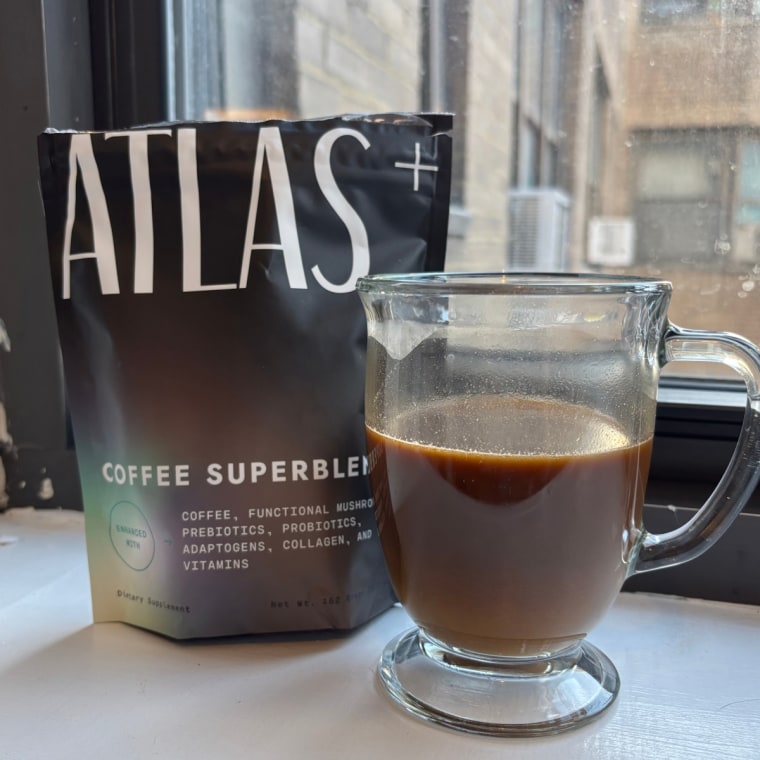
Meet our experts
At NBC Select, we work with experts who have specialized knowledge and authority based on relevant training and/or experience. We also ensure that all expert advice and recommendations are made independently and without undisclosed financial conflicts of interest.
- Dr. Michael Aziz is an attending physician at Lenox Hill Hospital in New York City, and the author of “The Ageless Revolution.”
- Dr. Amy Lee is a medical nutritionist based in Orange County, California, and the founder of Nucific.
- Dr. Brynna Connor is a family medicine doctor based in Austin, Texas and a healthcare ambassador at NorthWestPharmacy.com.
Why trust NBC Select?
I’m a reporter at NBC Select who’s covered health and wellness for five years, including topics like electrolyte powders, honey for allergies and prebiotic sodas. To write this article, I talked to three doctors about mushroom coffee and tried a few varieties myself, which brands sent me as courtesy samples.
Catch up on NBC Select’s in-depth coverage of tech and tools, wellness and more, and follow us on Facebook, Instagram, Twitter and TikTok to stay up to date.
